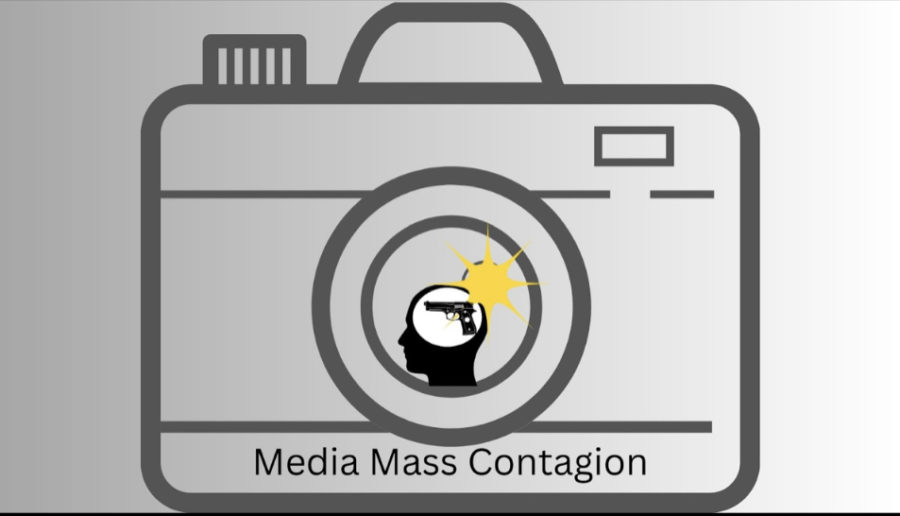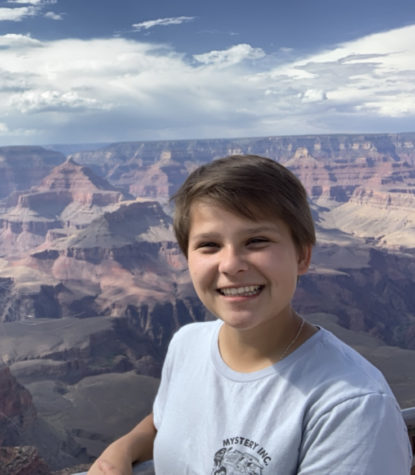Media sensationalism negatively affects mass shootings
A canva that shows a shooter in the spotlight of a camera flash which shows how sensationalism can create platforms for shooters.
May 7, 2023
Just over 100 days into the new year, 201 mass shootings have occurred, according to the Gun Violence Archive.
Some of the most notable of these tragedies occur in educational institutions.
According to a school shooting tracker created by edweek.org, 18 of these shootings took place in schools.
News outlets covered most of these events. Media sensationalism created an economy for bloodshed, and mass shootings quickly provide more money and views. Sensationalism in media refers to the use of specific words or phrases to get the most attention possible. Using sensationalism on mass shootings to bring in more money stands as a distasteful and dangerous practice.
The media contagion effect directly relates to media sensationalism. Media contagion states that behavior may become ‘contagious’ and a highly covered event could likely spark another similar event. A contagion effect for mass shootings might exist if a shooting inspired another event, according to the National Library of Medicine.
The 1999 Columbine High School shooting embodies both media sensationalism and media contagion. One of the first highly-covered shootings, the Columbine shooting got more views on CNN than the death of Princess Diana, according to center4research.org. The shooting now serves as one of the most copycatted school shootings.
Media contagion’s biggest consequence comes from copycat shooters. Individuals who identify with a shooter, perhaps someone who feels rejected by and hateful towards those around them, can see the profuse amounts of attention that these shooters receive, and realize they can get that attention for themselves if they just do the same thing; shoot.
Media sensationalism grants platforms to these shooters, spotlights that allow them to project their beliefs and seek fame for their crimes that create dangerous, long term consequences.
In 2014, a man named Elliot Rodger killed six people before himself in Isla Vista, California. A raging misogynist, Elliot Rodgers blamed women for his celibacy and claimed entitlement to their affections and sex.
‘Incels’ or involuntary celibate men deemed Rodgers the ‘Supreme Gentleman’ and idolize his ideologies against women and his actions in 2014, according to bbc.com.
The idolization of this man and his ideals endanger women’s safety and severely hinder any attempt at equality in justice. Some form of hate usually backs most shootings, and the spotlight on these hate-fueled murderers allows them to spread their beliefs and find a larger community that supports them.
Large platforms supporting this hate already weighs heavy over social media and the news. Shootings serve as the perfect opportunity to express hate in a violent manner, and the more these events get advertised, the more this hate grows. This vicious cycle of advertising hate only feeds fuel to the fire, and if efforts don’t get made to reduce the impact of shootings, the number of them occurring will only continue to grow. The longer this hate gets to fester and grow, the more deadly these shootings will continue to be. These advertisements to other shooters need to stop.
Social media and news outlets need to focus their efforts to reduce the attention shooters receive, such as refusing to name shooters. They must focus on the victims, and direct their support into reducing such catastrophes. Granting any more shooters the ability to share some spotlight only fuels the vicious cycle of death that comes from an easily solvable problem.


